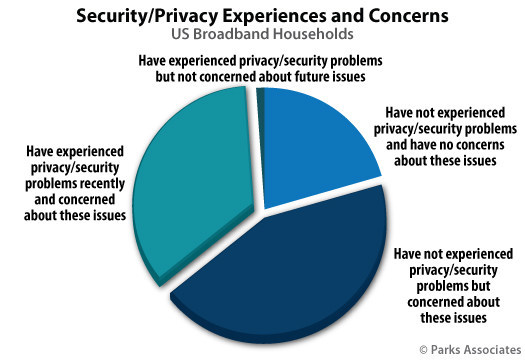How much time does your development team take to fix software issues?
The average developer spends up to 20 hours a week fixing bugs alone. Software problems like crashes, malware attacks, corrupt drivers, outdated systems, slow upload or download time, installation errors, and bugs affect how efficient your team is and how reliable your development process is.
Companies need effective and efficient software testing to prevent common issues that negatively affect customer experience without wasting limited manhours. When thinking about how to get this done, it’s the same buy versus rent decision. Should you hire and have your own internal QA department, or are your time and resources better allocated if you outsource software testing? This guide steps through some of the common elements you need to know when considering outsourcing software testing for your company.
What Is Software Testing?
Software testing is a profession: It ensures that a software product or application is functional and meets industry standards before launching for public use. As such, before releasing your software to the public, you want to ensure that it works and works “well.”
These days, with the pressure to release software faster and with more features, some organizations may let their users do the testing for them and let them find bugs. However, for those organizations that want to maintain their market share and reputation, testing thoroughly and ensuring software quality is a key element of their product and company strategy. Therefore, thorough testing always occurs before a product goes live, so any errors may be corrected ahead of time, which helps customer satisfaction and prevents customer or end-user churn.
Software testers play a key role in ensuring software quality by validating and verifying the integrity of the product, checking for data gaps or defects, and ensuring customers have seamless use of the product — all while ensuring that y
our business stays within budget and time-to-launch.
9 Reasons to Consider Software Testing Outsourcing
Do you change your own oil in your automobile? Mow your own grass? Do all your house cleaning? Those are all home chores you can probably do, but maybe don’t because you feel your time is better spent elsewhere. Yet, it’s difficult to find someone you trust who will do a good job the way you’d do it yourself, right? That’s why many software firms turn to outsourced software testing to save your company valuable time and effort and find a valuable partner to support you to launch a world-class product — that is, a successful product.
Outsourcing QA services can save money and time, improve your product, improve efficiency, conduct multiple tests, and prevent corporate emergencies. Outsourcing software testing also allows you to focus on your core expertise, developing software in your domain niche. Here’s how.
Reason #1: It’s Less Expensive Than In-House Testing
Did you know that the in-house software testing process can cost three times as much as outsourced software testing services?
That’s because running and maintaining an in-house testing team is expensive: You’ll need programmers and a quality assurance (QA) team with various tools to conduct software testing as a critical component of the full software development process.
In addition to labor costs, you’ll also need to figure out and buy your own tools. These tools aren’t standard across the board, though. You’ll likely need to find a defect management system, a test automation toolset, and performance testing tools, as well as conduct and manage the results of all the tests you want — which is difficult to come by and costly.
For example, many software testing platforms, like Selenium, have hidden costs. Although they are open source and ‘free’, there are many other costs to consider in development and maintenance, but if you go with an experienced outsourced software testing company that has expert testers, your total costs will be much lower than your own, especially if you consider the starts and stops and trial and error process you’ll have to go through on your own..
Another consideration is how often you need testing: Maintaining a full-time software testing team is several extra salaries. You can hire an external testing team however little or often you need them while paying a fraction of the cost to maintain an in-house software team. No benefits, no personal time off, no complex HR issues. Easy Peasy.
Reason #2: Save Your Department Time
Software engineers need extra time to perform integration testing, security testing, bug tracking, performance testing, unit testing, and test management. Unfortunately, these time-consuming activities can cause projects to launch late or go beyond the budget. On the other hand, you may choose not to do them, roll the dice with your product quality, and hope users don’t complain.
Hiring in-house junior testers may seem like the best time-saving and money-saving option, but this isn’t always the case. While experienced testers are higher priced, junior testers need extra time for training and learning and take time to be productive. You’ll also need a senior QA engineer to check for any errors in their work. Ultimately, you’ll waste time your team could have spent creating more features and functions your users want.
Many don’t realize that integrating with and working closely with a software testing partner saves 22% more time on unplanned work. Instead of spending time on ad-hoc work like bug fix requests and common errors, your development team can focus on their jobs: Creating competitive products and updates at higher velocity while increasing the quality of your software.
Reason #3: Improve the Final Product
As you might already know, customer experience is the single most crucial part of creating a successful product. If users run into errors or have long wait times, they’re more likely to put down the app and avoid buying products from that company in the future.
For example, page load time is essential to get right before launch. Bounce rate increases by 32% if the page load time is greater than 3 seconds, so you’ll need to consider the page load times for not only web but also mobile versions as app performance is a crucial element in the user’s first impression. Once you’ve got that conquered, you still have to ensure its easy for the customer to interact with your product once captivated.
Software testing outsourcing testing not only means you have outside experts who can test the performance of your software, it also means you have an outsider’s perspective, which shares new angles and helps prevent developer bias. Developer bias occurs when a developmental team judges the functionality of a code based on their personal experiences and interests.
But an unbiased individual can help improve code and provide constructive criticism to your team, allowing your company to see the software through the customers’ eyes.
Reason #4: Improve Your Team’s Efficiency
Whichever side of the AI fence you’re on, there’s no denying that automation testing increases workflow and employee productivity.
Automated testing by XBOSoft uses internally-made, exclusive software to execute test case suites on your application — where we can predict actual and predicted outcomes to improve your software. In turn, your team reduces time spent on testing and maintenance tasks.
Many software testing outsourcing companies, like XBOSoft, have both manual testing and automated testing. That means our team of experts can find errors that automation testing may miss.
Reason #5: Cover All Bases with Multiple Testing Types
Companies need a wide variety of testing in different environments to ensure the program runs accurately, protects confidential information, formulates structured and mature processes, and enhances product ease of use. Here are some of the most popular forms of testing that all software testing companies should provide.
Localization Testing
Localization testing ensures a software delivers optimal functionality wherever a customer uses it. The targeted customer’s geographic location and preferred language are two key aspects when localization testing.
For example, the lack of a phone number format for customers in Australia would make it difficult for them to register their phone numbers to your software or mobile app.
You should also ensure that the software license obeys the rules of your operating regions. For instance, you’ll need to comply with the European Union General Data Protection Regulation (EU GDPR) when processing sensitive data of European residents and citizens, like driver’s license numbers.
User Acceptance Testing
User acceptance testing is used when actual users check the app as they use it. This software testing process is spontaneous; experienced testers can use prior experiences in software testing to think on their feet.
You’ll be surprised to learn that this spontaneity can yield exciting results: One case study shows that a team of testers found 23 bugs after two hours of exploratory testing. That’s 23 hidden issues that other testing methods could have missed!
Security Testing
Security testing reveals your software’s vulnerabilities, risks, and threats. This testing helps identify loopholes that attackers may use to compromise software security.
Unfortunately, the severity and number of data breaches increase yearly.
As a result, consumers are more concerned about data security and privacy issues than ever — which is why companies need extensive and in-depth security testing to ensure their software protects consumer privacy. This testing process keeps customers safe and secure while using your application, yet it is often left until the end or not done as companies race to get products released. Don’t end up in the news; let an outsourced software testing firm that knows how to protect your interests step in and help you before it’s too late.
Performance Testing
Performance testing ensures that your software meets customer expectations. It looks at issues such as load time, reliability, and stability.
Performance testing will also examine how long your software responds to consumer commands. For example, your page may load in one second, but what happens if 1000 users try to print a report? Does your app remain interactive? How long does it take to respond to a click or button tap? Ideally, your system should respond in 0.1 seconds for a user to feel an instantaneous response.
Functional Testing
Functional testing ensures that your software meets the desired specifications or requirements. It also ensures a seamless transition from screen to screen, without errors legibly displayed to the user.
For instance, does the software allow users to safely connect to the bank and make payments to your website? Each user scenario of the software should be tested to guarantee that the cogs work seamlessly to guarantee not just functionality but also ease of use without compromising user experience and security.
Reason #6: Prevent Costly Corporate Emergencies and PR Nightmares
Your software development time may not have time to do thorough software testing – but that doesn’t necessarily mean the product’s launch date is pushed back. Some companies push forward their software application without extensive testing, which can cause expensive corporate emergencies.
In 2012, a batch scheduling software glitch forced one million Royal Bank of Scotland (RBS) customers to experience an outage. As a result, the bank spent £175 million compensating customers and paying staff.
In a different case, the Rutherford County of Tennessee lost more than $1 million and two years’ worth of work after their court software system update developed software glitches.
But extensive software testing will ensure that your company doesn’t experience financial crises like these.
Reason #7: Scalability
Outsourcing your software testing can help you scale your testing efforts in a few different ways:
- Flexibility: If you have a project with fluctuating testing needs, outsourcing can provide the flexibility to scale testing resources up or down as needed. You can increase or decrease the number of testers working on your project as needed without the overhead of hiring and onboarding additional in-house staff.
- Short-term projects: If you have a short-term project requiring a large amount of testing, outsourcing can provide a quick and cost-effective way to bring on additional testing resources.
- Specialized skills: If you need to test your software for a specific platform or technology and don’t have the necessary skills in-house, outsourcing can provide access to specialized testers who have the expertise you need.
Overall, outsourcing can provide a scalable and flexible solution for your testing needs, allowing you to quickly and easily adjust your testing resources as needed.
Reason #8: Access to specialized tools and technologies
To test your software thoroughly and efficiently, you’ll need to go beyond manual testing. These tools take time to figure out not only to use but which one best fits your company’s needs. Software Testing Outsourcing Companies such as XBOSoft have access to specialized tools and technologies that you may not have in-house, which can help to ensure that your software is thoroughly tested.
Some of the tools and technologies that testing firms may have access to include:
- Test automation tools: Testing firms may say they have experience using tools such as Selenium, Appium, TestComplete, CodedUI, Ranorex, etc., but successful test automation takes much more than a tool.
- Performance testing tools: As with test automation, there are numerous tools like JMeter, Webload, Kobiton, and LoadNinja that can simulate high levels of traffic and load to test the performance of your software. However, analyzing the results to systematically find and fix bottlenecks takes more than running a tool.
- Security testing tools: It’s the same idea or concept as security tools. Tools like BurpSuite and SonarQube can give you a long report about the vulnerabilities in your software, but prioritizing, fixing, analyzing the results, and then running the tests again to see if you were successful requires deep expertise.
- Mobile testing tools: Testing mobile platforms can be done with many tools as well. Device farms like Amazon and Perfecto complemented by Kobiton, and Calabash, can really help you. But figuring out when it’s best to use what tool and for what situation can be difficult.
- Cross-browser testing tools: Testing software on various browsers and operating systems to ensure compatibility is a critical item often overlooked. Tools like BrowserStack and TestComplete can help you make sure you’ve got all the bases covered. Do you know what are top devices, OS/Browser combinations of your typical users?
Reason #9: Improved testing coverage
- One example of how an outsourced testing company can provide improved testing coverage is by providing coverage across different time zones. This allows for continuous testing, as the testing team can work while your in-house team is off-duty. For example, if your in-house team is located in the United States, an outsourced testing team like one of our branches in Asia could take over testing responsibilities during the nighttime hours in the US. This allows for faster turnaround times and quickly catching issues and bugs.
- Another way that an outsourced testing company can provide improved testing coverage is by having a team of testers with a wide range of expertise and experience. This can allow the testing team to cover a broader range of testing scenarios and use cases, resulting in more thorough testing.
Overall, outsourcing your testing can provide improved testing coverage by allowing you to access a team of experienced testers who can work around the clock and bring a wide range of expertise to your project.
5 Key Criteria to Consider When Outsourcing Software Testing
The need to establish reliable software testing is clear. Now the issue is selecting a trustworthy software testing outsourcing company. The company you partner with needs to be experienced and well-versed in common issues while also examining the security and functionality of your software.
Factor #1: Trust
Trust is the currency of the digital age, but what does it mean when choosing a software testing company as your outsourcing partner? Any firm will tout its capabilities, but a long-term partner requires a lot more than beauty. A trustworthy partner will tell you what you need AND what you don’t need. They’ll look out for your best interests in choosing tools and developing processes that minimize your effort and overall costs. Ultimately, a trusted partner will tell you when they don’t need to put so many resources on the project, which may even mean less revenue for them.
Factor #2: Security
Related to trust, is the security of your user’s data and your software. A 2019 study revealed that 79% of US consumers using broadband were concerned about data privacy and security issues. In addition, 35% had already dealt with issues such as identity theft, malware, spyware, and data theft within the past 12 months.
That’s why a good software testing company guarantees the safety of customer and company data through data security measures. These software testing outsourcing companies will examine and employ the highest data encryption and protection practices.
Factor #3: Jurisdiction
Depending on your needs, you may need a testing team within your country or across borders. Ensure that the chosen company meets all legal obligations, including data security, in its operational areas. If the experts are in different locations, you’ll need to consider time zones and find a good time for everyone to meet and set deadlines. Working with a software testing company with different locations other than your own may seem inconvenient on the one hand, but on the other hand, keep in mind that you’ll be able to pass the baton and have work done while you’re sleeping. You wake up, have a few hours to work ‘in the same room’, and then keep going round the clock.
Factor #4: Quality Results and References
For your product to succeed, you need it to be highly competitive — so ask for the testing company’s past project records or customer testimonials to examine the quality of their results.
When speaking with references, ask open-ended questions that let the reference expand on when things don’t go well and how they are resolved. Ask how their software testing partner met their needs not only when they started working together but over the long term. information to establish a baseline for your expectations. If you’re left with questions about testing quality, consult with multiple references before making your decision.
Factor #5: Capabilities
Set Key Performance Indicators (KPIs) and understand the software testing company’s ability to meet them. When working on a project, KPIs are quantifiable progress indicators to measure if the targets have been met.
Therefore, you can monitor efficiency, track changes, and note lagging indicators to make informed management decisions. For example, you can set defect density, resolution time, and tests executed as KPIs for software testing.
Stay Ahead of the Curve: Outsource Your Software Testing Today
Outsourcing software testing is beneficial to your business.
Not only will you save time and money, but these teams of dedicated software engineers have a wealth of knowledge — their entire job is to test code. An in-house software team may miss glaring details regarding their product because they’re so bogged down with other responsibilities.
That’s why you need a partner who guarantees data privacy and security, works within your preferred jurisdiction, offers high-quality software testing, and has high capabilities to achieve your desired goal.
With XBOSoft as your software testing outsourcing specialist, your software development team spends time innovating and solving bugs instead of auditing the product. Talk to us today to get a quote for the best QA testing services.
Need Help with Your Software Testing Strategy?
Most Popular
 |
A Quick Introduction To Jira
By: Jimmy Florent |
|
 |
Visual Regression Testing Market Challenges and Opportunities
By: Philip Lew |
|
 |
Agile Testing Solution Market Continues to Grow – What Are The Key Challenges?
By: Philip Lew |
|






Leave A Comment